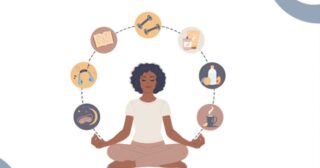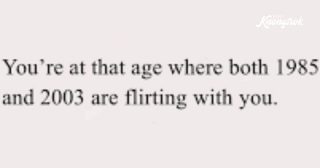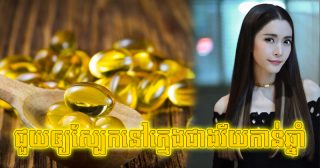Tis Better to Have Loved and Lost Than Never to Have Loved at All
The famous line from Alfred Lord Tennyson’s poem, “In Memoriam A.H.H.”, has sparked reflection and debate for centuries: “‘Tis better to have loved and lost than never to have loved at all.” While many interpret it as a consolation for those who have experienced heartache, its deeper meaning suggests that love, even when fleeting or painful, is a vital part of the human experience. Love enriches our lives in ways that are invaluable, even if it comes with the risk of loss.

Let’s explore why it truly is better to have loved and lost than to have never experienced love at all.
The Depth of Human Experience
Love, in all its forms, is one of the most profound experiences a person can have. It has the ability to transform us, to awaken emotions, and to deepen our understanding of ourselves and the world.
•Love Connects Us to Life: Love provides a sense of connection, purpose, and fulfillment. Whether romantic love, familial love, or love between friends, it opens our hearts and allows us to bond with others in ways that can change us forever.
•Example: Think of your most cherished memories. More often than not, those moments are linked to the people you love. Even after the loss of that relationship or person, the memories and lessons remain, shaping who you are.
•Growth Through Vulnerability: When we love, we open ourselves up to vulnerability. This exposure to another person allows for personal growth—through both the joy of intimacy and the pain of loss.
•Personal Growth: Loving someone, even if the relationship ends, helps us learn about our needs, desires, and capacity to give and receive love. Each experience, whether joyful or painful, leaves us wiser and more attuned to ourselves.
The Value of the Experience, Not the Outcome
Often, people view love as something that should last forever, but the value of love is not always in its permanence. Even relationships that end or people who pass away leave behind important lessons and unforgettable experiences.
•Love as a Journey, Not a Destination: The beauty of love lies in the journey. Whether the love story lasts a lifetime or just a moment, the feelings, memories, and growth it provides are what make it worthwhile.
•Example: A brief romance that taught you the importance of trust or a friendship that ended but gave you moments of true companionship—these experiences leave a lasting imprint on your heart.
•Learning from Loss: Loss, while painful, often brings clarity and perspective. It teaches us resilience, the depth of our emotions, and the true meaning of love. The end of a relationship doesn’t erase the love that was shared; it simply transforms the way we carry it forward.
•Gratitude for What Was: Even in heartbreak, there’s a space for gratitude. To have loved someone deeply is to have experienced something precious, and though the end may be hard, the joy and connection shared should be celebrated.
Avoiding Love is Avoiding Life
To avoid love out of fear of loss is to avoid one of life’s richest experiences. Love brings both the highest joys and the deepest sorrows, but it is this emotional spectrum that makes us truly human.
•Fear of Pain Limits Our Experiences: Many people shy away from love because they fear the inevitable pain that may come with it. However, avoiding love to protect oneself from potential heartache also means missing out on the richness, happiness, and fulfillment that love can bring.
•Example: Imagine never allowing yourself to love, to avoid the hurt of a breakup or the grief of loss. Life would feel safer, but it would also be emotionally limited, lacking the intensity of joy and connection that love offers.
•Love Enriches Our Lives: Love has the power to bring meaning and purpose. It teaches us compassion, empathy, and the beauty of human connection. To never experience love is to miss out on one of life’s most profound sources of happiness.
•The Fullness of Life: Life without love, while safe from heartbreak, is incomplete. Love deepens our understanding of the world and ourselves, enriching us in ways that far outweigh the risk of loss.
Examples from Literature and Life
Great writers, poets, and artists have often reflected on the value of love, even in the face of loss. They affirm that the briefest moments of connection, the intensity of shared emotions, and the memories of love are far better than living without them.
•Shakespeare’s Romeo and Juliet: Despite the tragic end of their story, the love shared between Romeo and Juliet is timeless. Though it ended in loss, their love is remembered as one of the most passionate and enduring in literature.
•Reflection: The tragedy of their fate doesn’t diminish the beauty of their love. In fact, their brief time together is more poignant and powerful because of its fragility.
•Real-Life Example: Many people who have loved and lost—whether through death or breakups—often reflect on their experiences with a sense of gratitude. The time shared, the lessons learned, and the personal growth they gained are invaluable parts of their lives.
Conclusion: Love is Worth the Risk
The risk of losing love is real, and the pain that follows loss is undeniable. But the alternative—a life without love—is far more sorrowful. To have never experienced love is to miss out on the beauty of connection, the joy of shared moments, and the personal growth that comes from vulnerability.
Tennyson’s words remind us that love, even when accompanied by loss, is one of life’s greatest gifts. It teaches us to live fully, to embrace the highs and lows of human emotion, and to cherish the connections we make along the way.
Ultimately, it is better to have loved and lost than never to have loved at all, because love enriches our lives in ways that nothing else can. It is the essence of what makes life meaningful, and its impact is felt long after it has passed.
This article explores why love, despite its risks, is always worth experiencing. Let me know if you’d like to adjust or expand on any sections!










